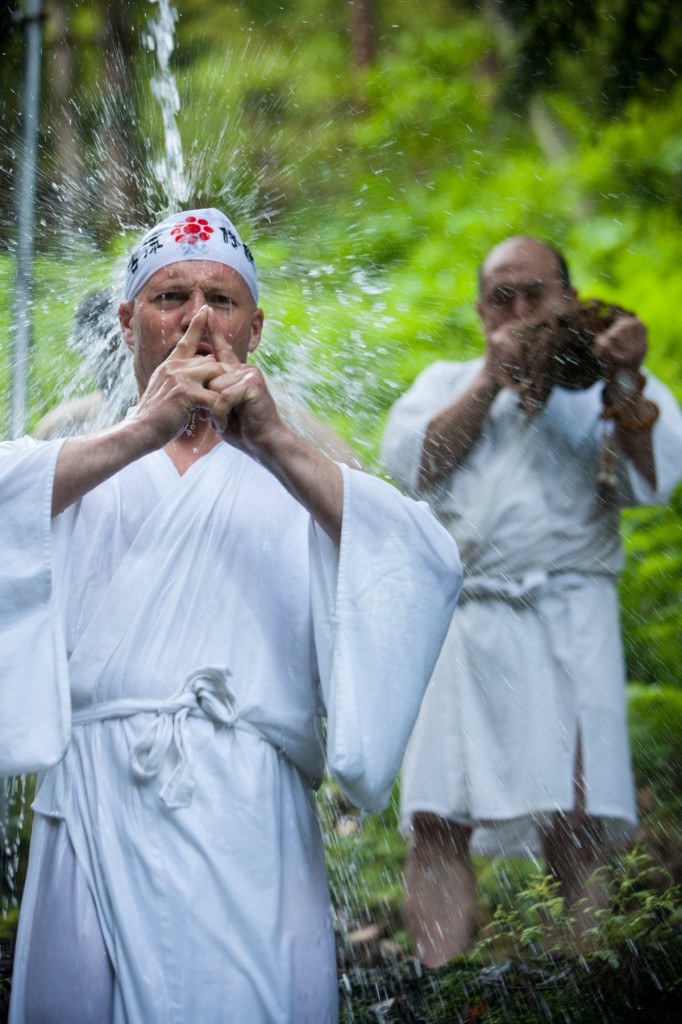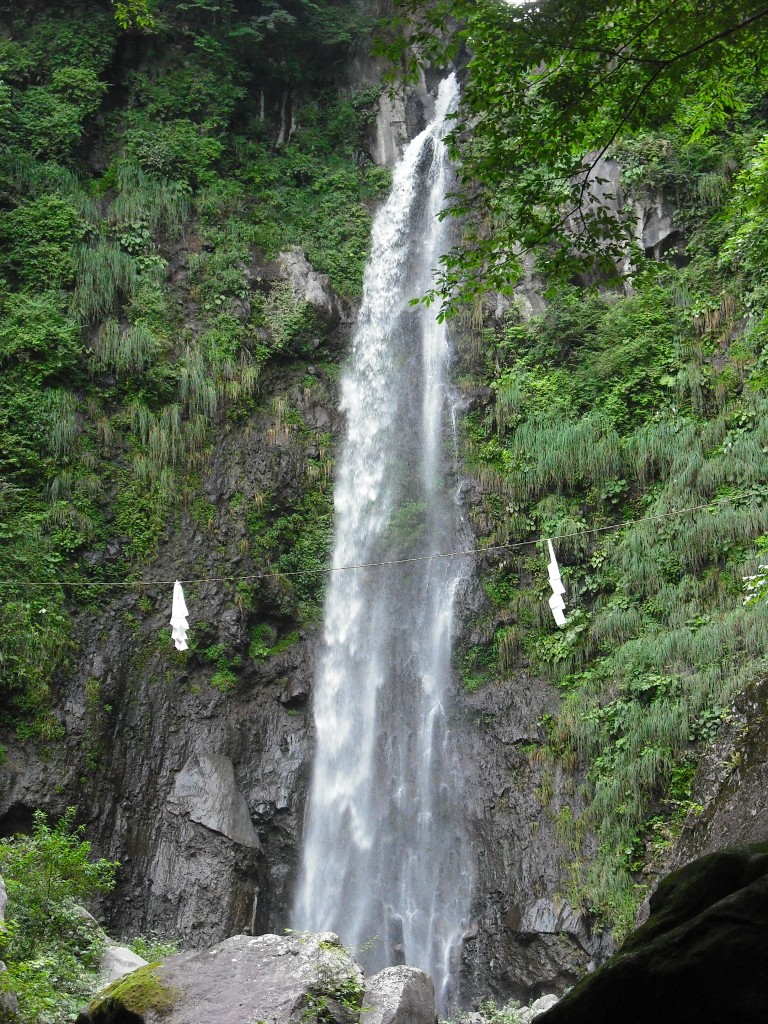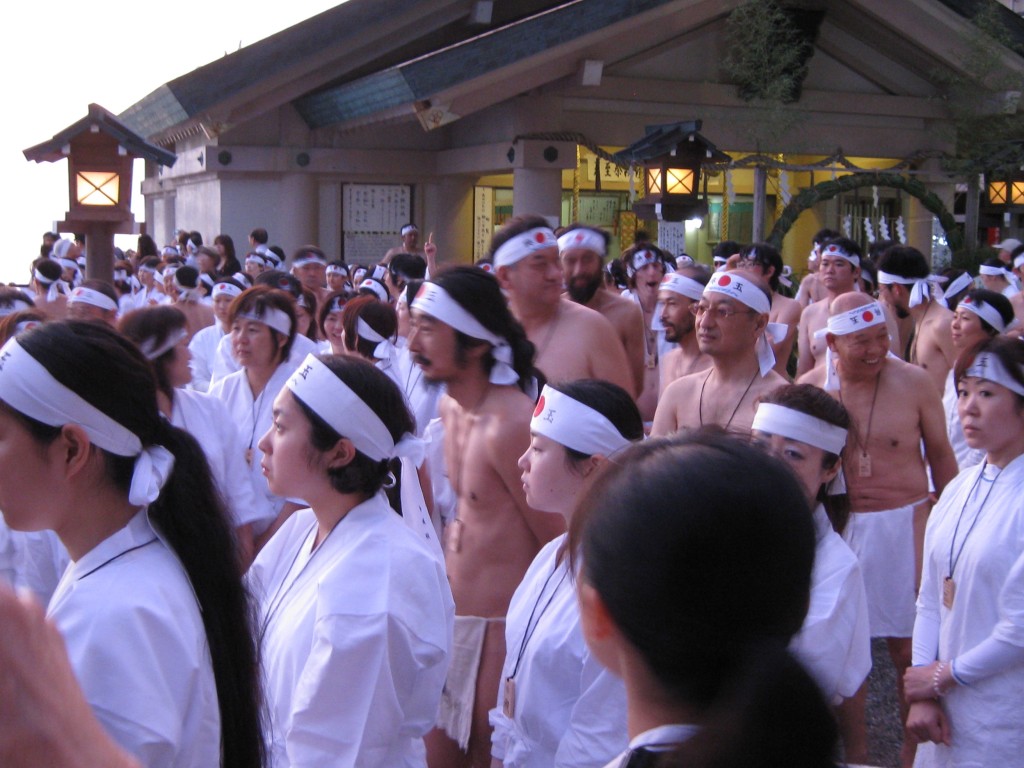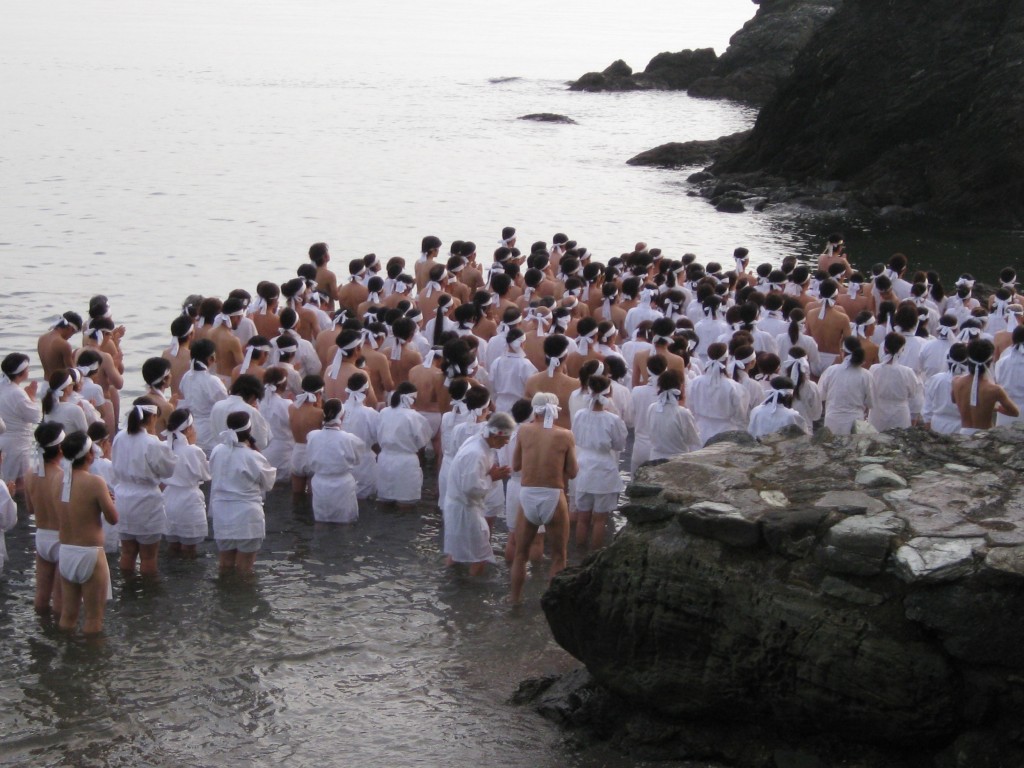Misogi is a ritual form of cold water immersion, practised by some Shinto followers. As with many traditional practices, it turns out that modern science corroborates the benefits. That cold water is invigorating is obvious enough, but that it has many other practical health benefits is not so widely known.
Below is a report on the benefits of cold water showers by Todd Becker, a scientist who has been following medical research on the subject. For over six months he has been taking cold showers himself, and he writes about the experience below. (See http://gettingstronger.org/2010/03/cold-showers/)
**************************************************************************************************
As one form of hydrotherapy, the health benefits of cold water therapy are numerous. Cold showers provide a gentle form of stress that leads to thermogenesis (internal generation of body heat), turning on the body’s adaptive repair systems to strengthen immunity, enhance pain and stress tolerance, and ward off depression, overcome chronic fatigue syndrome, stop hair loss, and stimulate anti-tumor responses.

Christian Grubl performs a misogi rie with a shugendo group
When you start with cold water, you will experience the phenomenon of cold shock, an involuntary response characterized by a sudden rapid breathing and increased heart rate. This in itself is very beneficial.
The extent of cold shock has been shown to decrease with habituation, and exposure to colder water (10C or 50F) appears to be more effective than just cool water (15 C or 59F) in promoting habituation. The habituation itself is what is most beneficial, both objectively and subjectively. There is an analogy here with high intensity resistance exercise and interval training, both of which elevate heart rate and lead to long term adaptations to stress, with improved cardiovascular capacity and athletic performance.
But cold showers provide a different and probably complementary type of habituation to that which results from exercise. A study of winter swimmers compared them with a control group in their physiological response to being immersed in cold water: Both groups responded to cold water by thermogenesis (internal production of body heat), but the winter swimmers did so by raising their core temperature and did not shiver until much later than the controls, whereas the control subjects responded by shivering to increase their peripheral temperatures.
Other studies confirm that the benefits of habituation show up only after several weeks of cold showering. For example, adaptation to cold leads to increased output of the beneficial “short term stress” hormones adrenaline and thyroxine, leading to mobilization of fatty acids, and substantial fat loss over a 1-2 week period.
So regular cold showers, like high intensity exercise, and intermittent fasting, appear to provide similar, but not identical benefits.

Waterfalls await cold water practitioners all over Japan
But now I’d like to focus on the subjective experience of taking cold showers, something not commented on in many of the studies I’ve read. If you follow my approach and plunge right into a cold shower, you’ll get the initial “cold shock” mentioned above: a quickened pace of breathing and a pumping heart.
Often I find myself involuntarily smiling or even laughing. For waking up, this beats caffeine. I keep the water cold the whole time. It helps to brace yourself when entering by gritting your teeth and stiffening your muscles. Go in head first and alternate from back to front to make sure you are getting cold all over, including your hands and arms and any sensitive zones.
After about a minute, you’ll find the cold water starts to become more tolerable, and after 2 or 3 minutes you’ll feel your body getting warm by its own efforts. This is thermogenesis. I make a point of staying in the shower until I’m no longer uncomfortable. I found that at first my hands were the most sensitive part, and now they are no longer as sensitive, so they have habituated.
When I started taking cold showers, I measured the water temperature at around 60 F (16 C), but over time I have reduced this somewhat to 50-55 F (10-13C) as my body has adapted. (You can determine this by bringing into the shower a plastic cup and meat or candy thermometer and collecting some water once the temperature equilibrates). Of course, depending on where you live and the season, there is a lower limit to how cold you can go, but in general you should be able to get at least as cold as 60F in most places.
Also, my cold showers used to be very short, maybe 4 or 5 minutes, but now they last as long as my previous warm showers, perhaps 10 minutes. I still take the occasional warm shower, perhaps once every week or so, but I prefer the cold ones.
I find that cold showers are great for the mood. Not only are they physically invigorating, they make you feel alive, vital and ready to take on the day. They stimulate thinking early in the morning. I also believe that they have the effect of slightly raising blood glucose very quickly — by perhaps 10 mg/dl, and thereby have an appetite suppressing effect. Generally, this rise in blood glucose is relatively short in duration, but that’s good enough to prime the pump and get the day started.
These effects are apparent with the first cold shower. If you continue the practice for several weeks, you’ll find the psychological benefits are even greater. First and foremost, cold showers appear to have improved my stress tolerance, by buffering emotional reactions. What I mean by this is that bad news, surprises, arguments, or events that would have previously caused a brief surge in adrenaline or an emotional flush, no longer have that effect, or at most have a very attenuated effect. I think this is a consequence of becoming acclimated to the the adrenaline-producing effect of the cold shock.
You can experiment with the intensity of cold, the duration, and the frequency of cold showers to improve your tolerance at a tolerable rate. If you find that your heart is beating uncomfortably fast or you are going numb or experiencing pain of any sort, that’s a good reason to ease into the routine more slowly with water that is not so cold. Check with your doctor first if you have a heart condition, migraines, or pain. But don’t sell yourself short and rush through a cold shower, because you may find that extending a few more minutes provides the greatest benefits in adapting your body to tolerate stress. Not just cold stress — but physical and emotional stress in general.
“”””””””””””””””””””””””””””””””””””””””
If you want to take cold showers to the next level, i.e. bathing in ice, check out this article.

Waiting anxiously for cold water immersion in the early morning hours


Wonderful stuff: Cold showers is a lot easier for disciplined people. I have just one question – does the very cold shower have to be on full spray or medium spray or does that matter as long as it is on the very coldest setting. Thanks, Norm
If it’s cold it doesn’t matter about the spray. There are many misogi sites and settings in nature, from full immersion in rivers or torrential waterfalls to very small trickles. Whatever the setting, I hope you find it beneficial!